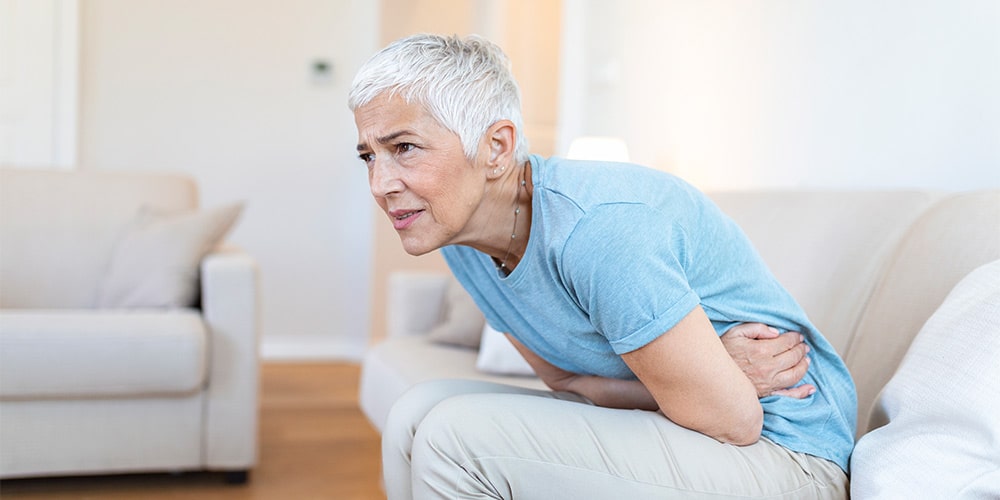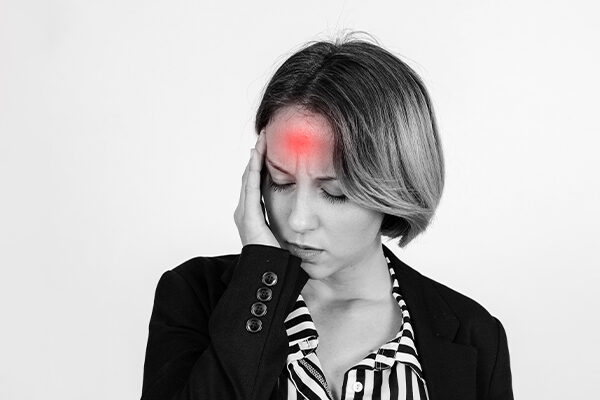Last Updated on September 23, 2024
Menopause Constipation?

Menopause Constipation refers to difficulties with bowel movements experienced by many women during or after the menopausal transition. While constipation can happen to anyone, the hormonal fluctuations associated with menopause can increase the likelihood of digestive issues.
Also read: Menopause Self-Care: Tips for Managing Symptoms & Well-Being
Causes of Menopause Constipation
- Hormonal Changes: One of the leading causes of this condition is the reduction in estrogen and progesterone. These hormones play a significant role in regulating various body functions, including digestion. When hormone levels drop, the digestive tract may slow down, leading to constipation.
- Slow Digestive Transit: Menopause can slow down the movement of food and waste through the intestines. The longer it takes for waste to travel, the more water gets absorbed, making stool harder and more challenging to pass. This sluggish movement is a key factor in menopause constipation.
- Dehydration: As women age, they may experience a natural decline in thirst, which can lead to dehydration. A lack of proper hydration can cause stools to harden, exacerbating this condition.
- Medications: Many women during menopause may begin taking medications, such as antidepressants or pain relievers, which can slow down bowel movements and contribute to menopause constipation.
- Lack of Physical Activity: With age, physical activity levels may decrease, which can affect the digestive system’s function. Regular exercise helps stimulate bowel movements, and a sedentary lifestyle can worsen constipation.
Symptoms & Signs of Menopause Constipation
Women experiencing this kind of discomfort in menopause may notice the following symptoms:
- Fewer than three bowel movements per week
- Straining during bowel movements
- Hard, dry stool
- Feeling of incomplete evacuation
- Abdominal bloating or discomfort
These symptoms can range from mild to severe, depending on individual factors like diet, activity level, and overall health.
Risk Factors for Menopause Constipation
Certain factors may increase the likelihood of constipation, including:
- Poor dietary habits (low fiber intake)
- Inadequate fluid intake
- Pre-existing gastrointestinal issues (such as IBS)
- Stress and anxiety
- Chronic use of certain medications
Effective Treatments for Menopause Constipation
While this disorder can be uncomfortable, there are several effective strategies to alleviate symptoms and promote better digestive health.
- Increase Fiber Intake: A diet rich in fiber is crucial for maintaining healthy digestion. Foods such as whole grains, fruits, vegetables, and legumes help bulk up stool and make it easier to pass. Women should aim for at least 25 grams of fiber daily to reduce constipation.
- Stay Hydrated: Drinking plenty of water is vital to softening stool and easing bowel movements. Women should drink at least 8 glasses of water per day, especially if they are increasing their fiber intake.
- Exercise Regularly: Regular physical activity can help stimulate intestinal function and improve bowel regularity. Simple exercises like walking, yoga, or swimming can help combat constipation.
- Consider Probiotics: Probiotics are beneficial bacteria that support gut health. Adding probiotics to your diet, either through supplements or probiotic-rich foods like yogurt and kefir, may help relieve this discomfort.
- Review Medications: If certain medications or treatments are contributing to menopause and constipation, it’s essential to consult with a healthcare provider. They may recommend alternatives or remedies to counteract the effects of medication-induced this condition.
- Stool Softeners and Laxatives: In severe cases, over-the-counter stool softeners or laxatives may provide temporary relief. However, these should be used with caution and under a doctor’s supervision to avoid dependency.
Preventing Methods
Incorporating lifestyle changes can help prevent menopause constipation from becoming a long-term issue. Some preventive tips include:
- Balanced Diet: Consuming a diet high in fiber and low in processed foods can support healthy digestion. Fruits like apples, pears, and berries, as well as leafy greens, can help regulate bowel movements.
- Hydration: Ensuring adequate water intake is essential to keep the digestive system functioning optimally. Water helps soften stools, making it easier to pass.
- Stress Management: Managing stress through mindful practices, meditation, or yoga can positively impact digestion. Stress can exacerbate condition in menopause and adopting relaxation techniques may ease symptoms.
- Routine: Establishing a daily routine for bowel movements can help train the body to eliminate waste more regularly. Sitting on the toilet at the same time each day, even if you don’t feel the urge, can encourage bowel movements.
When to Seek Medical Attention
While constipation in menopause is typically manageable through lifestyle changes, there are times when medical intervention is necessary. If constipation lasts for more than three weeks or is accompanied by severe pain, blood in the stool, or unexplained weight loss, it is essential to seek professional help. Chronic constipation may be a sign of a more serious underlying condition, such as a bowel obstruction or gastrointestinal disorder.
In Nutshell
Menopause Constipation is a common issue that affects many women as they go through hormonal changes. Understanding the causes and symptoms is the first step toward finding relief. By adopting healthier eating habits, staying hydrated, exercising regularly, and managing stress, women can manage and prevent constipation during menopause. If symptoms persist, consulting a healthcare provider is key to receiving appropriate treatment. Staying proactive about digestive health will ensure a smoother transition through menopause, making this phase of life more comfortable.




